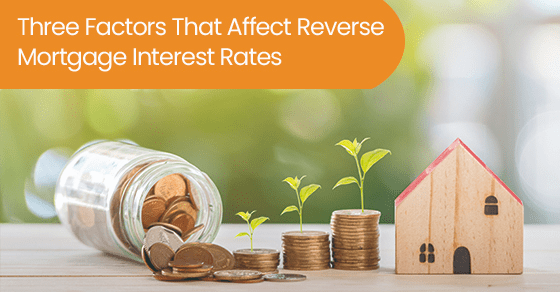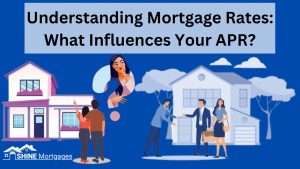Factors Affecting Reverse Mortgage Payouts

Reverse mortgages offer a unique financial tool for homeowners aged 62 and older. They allow you to access the equity built up in your home without selling it. The amount you receive isn’t a fixed sum; instead, it depends on several crucial factors. Understanding these factors is key to making an informed decision about whether a reverse mortgage is right for you.
Factors Determining Your Reverse Mortgage Payout
Several key elements influence how much money you can access through a reverse mortgage. These factors interact in complex ways, so it’s essential to consult with a financial advisor for personalized guidance. Let’s explore the most significant contributors.
Your Home’s Value
The most obvious factor is your home’s current market value. Appraisers determine this value through a professional assessment, considering factors like location, size, condition, and comparable sales in your area. A higher appraised value generally translates to a larger potential payout. However, lenders won’t lend against the entire value; they typically offer a percentage, usually between 50% and 60%, leaving room for a margin of safety.
Your Age
Your age significantly impacts the amount you receive. The older you are, the larger the loan amount you can typically access. This is because the lender has less time to recoup the loan principal and interest. The longer the repayment period (which typically only begins upon the sale of the property or the death of the borrower), the lower the monthly payment requirement and the higher the initial payout. This reflects the reduced risk for the lender.
Interest Rates and Loan Type
Interest rates play a vital role in determining the loan amount. Lower interest rates generally lead to higher payouts, as the overall cost of borrowing is reduced. The type of reverse mortgage you choose also affects the payout. For example, a lump-sum payout will offer a larger upfront amount than a line of credit, which allows you to borrow against your equity over time.
Outstanding Debts Secured by the Home
Any existing loans or mortgages secured against your property must be paid off as part of the reverse mortgage process. This means that the amount available to you will be reduced by the outstanding balance of these debts. This is a critical point to consider, as it can significantly impact the overall payout. Carefully reviewing all existing liens is therefore essential.
Fees and Closing Costs
Like any loan, reverse mortgages involve various fees and closing costs. These include origination fees, appraisal fees, title insurance, and other administrative costs. These fees reduce the net amount you receive, so it’s crucial to factor them into your calculations. These costs can vary between lenders, so comparing multiple offers is strongly recommended.
Understanding Different Reverse Mortgage Options
Several types of reverse mortgages exist, each with its own structure and payout methods. Choosing the right option depends on your individual financial needs and goals. Let’s briefly examine some common types.
- HECM (Home Equity Conversion Mortgage): This is the most common type of reverse mortgage, insured by the Federal Housing Administration (FHA). It offers flexibility in how you receive the funds (lump sum, line of credit, or monthly payments).
- Single-Purpose Reverse Mortgages: These loans are offered by some state and local governments or non-profit organizations and typically have lower fees and more stringent eligibility requirements. They may be restricted to specific uses, such as home improvements or property taxes.
- Proprietary Reverse Mortgages: Offered by private lenders, these mortgages may have different terms and conditions than HECM loans. They often have higher interest rates or more restrictive eligibility criteria. Thorough research and comparison are essential before committing.
Calculating Your Potential Payout
Accurately determining your potential payout requires careful consideration of all the factors discussed above. There’s no single formula; the calculation is complex and involves specialized software used by reverse mortgage lenders. It’s highly recommended to consult with a qualified financial advisor or reverse mortgage professional. They can perform a comprehensive analysis based on your specific circumstances, providing a clear picture of what you can expect to receive.
Risks and Considerations Associated with Reverse Mortgages
While reverse mortgages offer financial advantages, it’s crucial to understand the potential risks. A key consideration is that the loan amount, including interest and fees, will need to be repaid when the property is sold or the last surviving borrower passes away. Failure to repay the loan could result in the loss of the home. Careful planning and financial prudence are vital.
Furthermore, the interest on a reverse mortgage accrues over time, and the debt can grow substantially. This can reduce the equity remaining in your home, potentially affecting your heirs. It’s essential to discuss these implications with family members and seek professional financial advice to ensure you’re making an informed and responsible decision.
Choosing the Right Lender
Selecting a reputable and trustworthy lender is critical when considering a reverse mortgage. Research lenders thoroughly, compare their fees and interest rates, and read customer reviews. Look for lenders with a proven track record and excellent customer service. Don’t hesitate to ask questions and clarify any uncertainties before signing any agreements. Transparency and clarity are paramount in this process.
Consider seeking recommendations from trusted sources, such as financial advisors, friends, or family members who have experience with reverse mortgages. The right lender can make the entire process smoother and more straightforward, guiding you through each step with expertise and support.
Long-Term Financial Planning and Reverse Mortgages
Incorporating a reverse mortgage into your long-term financial plan requires careful consideration. It’s not a one-size-fits-all solution, and its suitability depends heavily on your individual circumstances, financial goals, and risk tolerance. It’s essential to understand how a reverse mortgage will impact your estate planning and the financial well-being of your heirs. Open communication with family members is vital to ensure everyone understands the implications.
Consider consulting with a financial planner or estate attorney who specializes in reverse mortgages to ensure you’re making an informed decision that aligns with your overall financial objectives. They can help you assess the potential benefits and risks, guiding you toward a strategy that meets your needs and protects your future.
The Importance of Professional Advice
The complexity of reverse mortgages necessitates seeking professional advice. Don’t rely solely on online resources or information from unqualified sources. Consult with a qualified financial advisor, reverse mortgage specialist, and potentially an estate planning attorney to gain a comprehensive understanding of your options. These professionals can help you navigate the intricacies of reverse mortgages, ensuring you make the best decision for your unique circumstances.
They can provide personalized guidance based on your financial situation, risk tolerance, and long-term goals. Their expertise can help you avoid potential pitfalls and make informed choices that protect your financial future and the well-being of your loved ones.
- Seek advice from multiple sources to ensure you receive a balanced perspective.
- Ask specific questions to clarify any uncertainties you may have.
- Thoroughly review all documents before signing any agreements.







